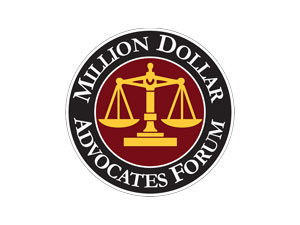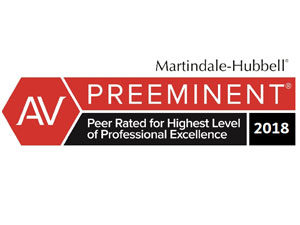$5.5M
$5.1M
$4.2M
$2.9M
$2.8M
$2.5M
$2.4M
$2.2M
Negligent Security
Most people think of the criminal side of Florida's justice system when a violent crime occurs, and while that side is certainly important to punish criminals, Florida's civil justice system can provide a path to substantial compensation for crime victims who file a lawsuit based on negligent security. Negligent or inadequate security cases fall under the broader umbrella of premises liability cases which allow people who are injured or killed because of dangerous conditions at a business establishment to seek just compensation for their damages. Think of a grocery store customer slipping on a banana peel on the floor. In a negligent security case, the violent criminal who commits the attack is like the banana peel on the floor. He is the dangerous condition on the premises.
Business owners can be held liable for the harm that results from their failure to implement adequate security measures on their premises.
REASONABLE SECURITY MEASURES
Negligent security cases arise when a criminal attack occurs at a business or commercial property because the owner failed to implement reasonable security measures to protect their customers or guests. What constitutes "reasonable" security measures depends on several factors including the type of business involved and the history of crime at that business and in the surrounding area.
Examples of reasonable security measures that can deter violent crime and help keep business invitees safe include security guards, off-duty police officers, video surveillance cameras, increased lighting, dummy cameras, video surveillance warning signs, installing locks and alarms and maintaining doors and gates among others. Some of the harms that can give rise to substantial damage awards in these types of cases include shootings, stabbings, rape, beatings and other types of assault that leave victims dead or suffering serious physical and psychological injuries.
TYPES OF BUSINESS ESTABLISHMENTS INVOLVED
Criminal activity can occur at any commercial establishment including bars, restaurants, parking garages, amusement parks, tourist attractions, chartered boats or yachts, hotels, hospitals, shopping centers, schools, universities, gated communities and apartment complexes, but certain types of businesses attract more violent crime than others. In fact, gas stations, strip-clubs, ATM machines and after-hours night clubs are known among law enforcement circles as "crime magnets." That's because there are elements of these businesses that make them attractive to criminals. Crime-magnet businesses may require more expensive and effective security measures to protect customers than other business types.
AFFORDABLE REPRESENTATION
The experienced assault lawyers at Hannon Legal Group represent crime victims in Miami and throughout the state of Florida on a contingent fee basis so you don't pay your lawyers anything unless we obtain a settlement or judgment for you.
CALL HLG TODAY
The negligent security lawyers at the Hannon Legal Group have secured millions of dollars in compensation for crime victims who were seriously injured or lost loved ones because of inadequate security at a business establishment. If you or a loved-one suffered injuries in a violent criminal attack at or outside of a business, call the Hannon Legal Group at (305) 358-3109 for a free consultation today.
How do you prove a negligent security case?
In Florida, the law imposes a duty on business and landowners to take reasonable steps to keep invitees safe. When a guests or customer is injured or killed in a criminal assault at a commercial premises, they will have to prove that the assault was foreseeable. Our trial lawyers use local crime data and crime grids to prove foreseeability. We also dispatch experienced private investigators to obtain witness statements and photographs and we work with local law enforcement agencies to take advantage of their investigations to prove liability.
There are several elements that will have to be proved including:
- The plaintiff was lawfully on the premises and not trespassing;
- A criminal attack was foreseeable based on a history of criminal activity on the premises or in the area and/or the lack of security measures;
- The owner of the business or property did not have adequate security measures in place; and,
- The plaintiff was injured or killed because of the lack of adequate safety measures.
EXAMPLES OF DEFENDANTS IN NEGLIGENT SECURITY CASES
Negligent security cases have been successfully prosecuted against owners and operators of businesses including:
- Gas stations
- Shopping centers
- Banks
- Bars/Restaurants
- Hotels
- ATM owners
- Schools and universities
- Airlines
- Cruise Lines
- Yacht or boat charters
- Condominium and apartment buildings
- Homeowners' associations
- Event promoters
- Night clubs
- Strip clubs
- Private security companies
- Daycare facilities
- Nursing homes
- Hospitals
- Parking garages / lots
- Office buildings
- Cyber premises such as internet chat rooms, websites and search engines.
What are examples of negligence?
An owner should take a variety of steps to ensure that their guests are safe from criminal attack.
When a business or property owner fails to take appropriate precautions to keep their premises secure, criminal activity may become a real threat to visitors. Examples of negligence in these situations can include:
Lack of Security Personnel
For businesses such as pubs, nightclubs, and concert venues, security guards are often required to provide adequate security. The failure to provide any security personnel could be considered negligent. Having poorly trained or supervised security guards would also be considered negligent.
Maintenance of Security Systems
Business owners should install effective security devices, such as security cameras, alarms and door closing/locking mechanisms where necessary to adequately protect guests. Maintaining these systems and devices in good working order is critical. It would be considered negligent if broken cameras, alarms, gates, locks, doors and lights were not repaired in a timely manner.
Negligent ATM Security
Automated Teller Machines (ATMs) and gas stations are "crime magnets." Criminals look to take advantage of people withdrawing cash from ATMs, especially if those cash machines are located in dark parking lots or in areas where they are not easily seen by passing cars or pedestrians. Gas stations provide criminals with easy access to victims who are usually standing outside their unlocked cars with their wallet or purse out as they pay for fuel. These environments require better security measures than others to keep people safe.
There are industry standards for ATM security. In Florida, for example, our statutes provide for specific minimum-security measures for all ATM locations.
Lighting Problems
Adequate lighting is a crucial component of good security. Criminals will look for dimly lit areas to commit crimes without being seen. Installing and maintaining adequate lighting is a must and the failure to do so can be considered negligent. In fact, the failure to replace burned-out light bulbs can create an environment conducive to criminal activity and the failure to replace burned-out bulbs could be considered negligent.
WHEN TO CALL A NEGLIGENT SECURITY ATTORNEY
The on-premises assault lawyers at the Hannon Legal Group have won many multi-million-dollar awards for victims of negligent security. We take great pride in securing just compensation for crime victims in Florida. If you or a loved-one suffered serious injuries or death in a criminal attack at a business establishment, call (305) 358-3109 to speak with an attorney today or fill out the Contact Form below to get in touch with one of our lawyers about your potential case.















